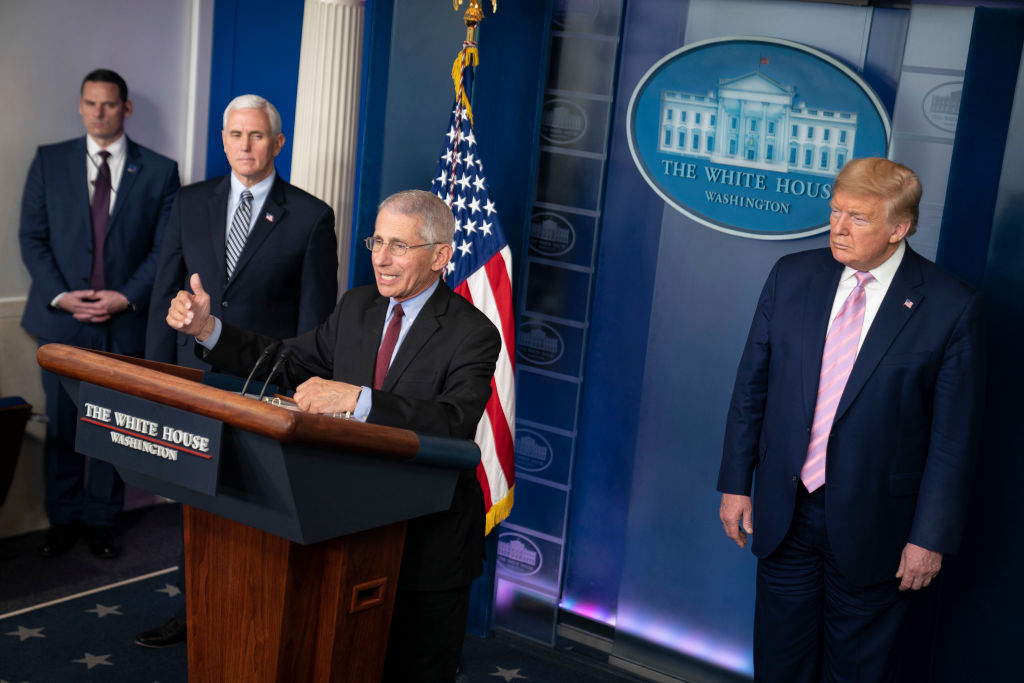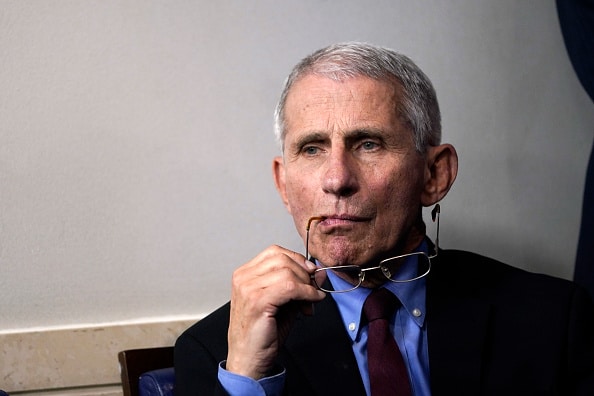National Institute of Allergy and Infectious Diseases Director Anthony Fauci. (Drew Angerer/Getty Images)
Dr Anthony Fauci, the top US infectious disease expert, has given an update to the coronavirus pandemic that is of almost religious importance for LGBT+ people – yes, you will one day brunch again.
With news of vaccines by American drugmakers ringing out across the world – a critical milestone in the exacerbated fight against COVID-19 – many policy planners, pollsters and leading public health experts have now begun to consider something that seemed almost inconceivable just months ago – a return to normality.
And for many a queer, normality means brunch. And a lot of it.
Appearing on Newsy‘s Datalogue, host Cody LaGrow asked the hard-hitting question: “Will the gays ever be able to brunch again?”
“Yes!” a smiling Fauci responds, no doubt causing countless queer men to whom brunch has been one of their defining personality traits to cheer in celebration. “And I’ll be happy to join you!”
Me: Will the gays ever be able brunch again?
Dr. Fauci: pic.twitter.com/RCO12VnrgG— Cody LaGrow (@CodyLaGrow) November 22, 2020
Let’s hope the Four Seasons Total Landscaping do a bottomless brunch.
Anthony Fauci praises the ‘courage and dignity’ of the LGBT+ community.
Fauci, the director of the National Institute of Allergy and Infectious Diseases and who is leading the US efforts against the coronavirus, has across his decades-long career sought to be an LGBT+ ally.
Since 1984, when he took up the top post, he oversaw the response to the AIDS crisis and even drew comparisons between the two at a press conference earlier this year. Praising the resilience of the queer community, all the while vice president Mike Pence stood mere feet away.

He explained: “Sometimes when you’re in the middle of a crisis, it does shine a very bright light on some of the weaknesses of our society. As some of you know, a greater portion of my career has been defined by HIV/AIDS.
“If you look back then, during that period of time when was extraordinary stigma, particularly against the gay community, it was only when the world realised how the gay community responded to this outbreak with incredible courage and dignity and strength and activism.
“I think that really changed some of the stigma against the gay community.
“I see a similarity here because health disparities have always existed for the African-American community.
“Here again, with the crisis now, it’s shining a bright light on how acceptable that is, because yet again, when you have a situation like the coronavirus, [minorities] are suffering disproportionately.”
